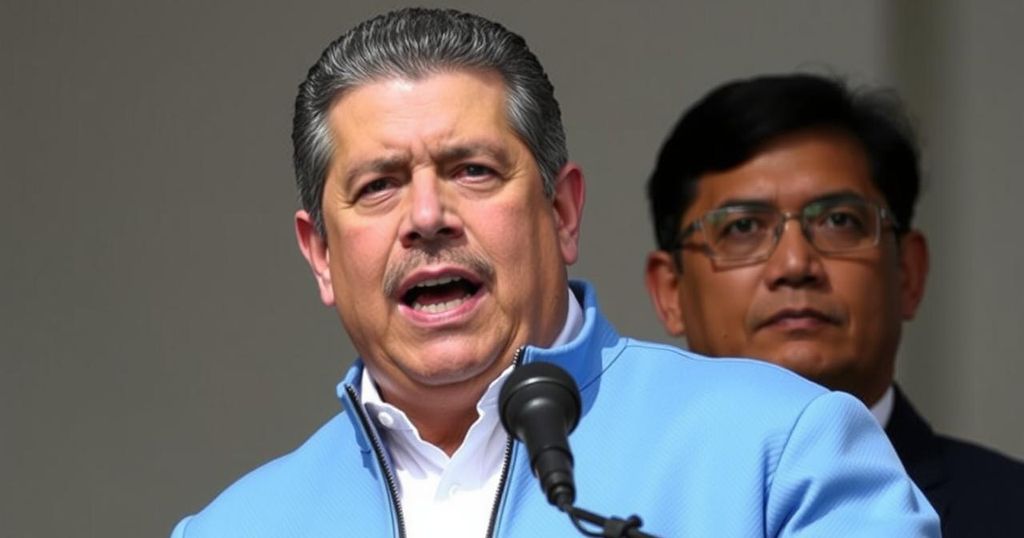Venezuela’s Maduro Sworn in Without Proof of Election Victory
Nicolás Maduro was sworn in for a third term as president of Venezuela amidst significant allegations of election fraud, with the opposition claiming a decisive victory for María Corina González. International reactions have been mixed, with many countries recognizing González while Maduro’s government employs stringent measures to maintain control. Key diplomatic efforts continue amidst ongoing political instability in the region.
On January 20, 2023, Nicolás Maduro assumed office for a third term as the President of Venezuela, following elections marred by allegations of fraud and a lack of credible evidence supporting his claimed victory. Despite Maduro’s continued rule, his legitimacy is increasingly questioned, particularly in light of the opposition’s revelations suggesting a landslide defeat. The opposition, led by president-elect María Corina González, demonstrated significant support through documented evidence, indicating González likely outperformed Maduro convincingly,
prompting a number of Latin American states to recognize her as the rightful leader.
Maduro’s inauguration was characterized by heightened security measures, including closed borders and canceled flights, reflecting his authoritarian grip and the controversy surrounding his electoral win. Key leaders from several countries, notably in Latin America, refrained from attending the ceremony, underscoring the divided international response to Venezuela’s political landscape. The tumultuous relationship between Maduro’s government and the international community continues as new diplomatic strategies are explored, especially under the Biden administration, which had sought a compromise with Maduro to encourage legitimate democratic processes.
Amidst these developments, the potential for political upheaval in Venezuela remains significant, with uncertainty about how future U.S. administrations will engage with Maduro or recognize alternative leadership amidst escalating tensions and humanitarian crises in the region.
Nicolás Maduro’s rise to power has been marked by claims of election fraud and authoritarian governance. His recent swearing-in without substantiated proof of victory highlights ongoing political instability in Venezuela. The opposition, under González, has mobilized significant evidence challenging Maduro’s electoral success. The international response reflects a mix of recognition for opposition leadership and reluctance to sever ties with Maduro’s regime. Over the years, diplomatic efforts, particularly from the United States, have oscillated, with varying approaches to sanctions and engagements aimed at restoring democratic governance in Venezuela.
In conclusion, Nicolás Maduro’s recent inauguration for a third term as president occurs amidst serious allegations of electoral fraud and a considerable lack of credibility surrounding his claimed victory. The opposition’s strong response and evidence indicating a decisive win for María Corina González mark a critical juncture in Venezuela’s political landscape. The international community’s recognition of González alongside the ongoing power struggle demonstrates the complexity of navigating diplomatic relations with a state facing profound governance and humanitarian challenges.
Original Source: www.washingtonpost.com




Post Comment